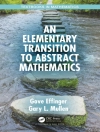What are the theoretical parameters that produce the category public intellectual? By pondering the conceptual elements that inform the term, this book offers not just a political critique, but a sense of the new challenges its meanings present. This collection complicates the notion of public intellectual while arguing for its continued urgency in communities formal and informal, institutional and abstract. While it is not quite accurate to say public intellectuals have disappeared entirely, it is clear they function differently in an age of global neoliberalism and techno-digital overdrive. Today the idea of the public intellectual bears only the slightest resemblance to what it was fifty or even twenty-five years ago. The essays in this collection provide a number of different ways to imagine the fate of public intellectuals and offers a thorough exploration of the commonplace ideologies and politics associated with them.
Tabela de Conteúdo
Introduction: Before the Beginning, After the End: Toward the New Public Intellectual; Jeffrey R. Di Leo and Peter Hitchcock
PART I: NEOLIBERALISM, EDUCATION, AND COMMITMENT
1. Writing the Public Good Back Into Education: Reclaiming the Role of the Public Intellectual; Henry A. Giroux
2. The Public Sphere Can be Fun: Political Pedagogy in Neoliberal Times; Sophia Mc Clennen
3. Teaching Literature, Teaching Commitment; Paul Allen Miller
PART II: DEMOCRACY, COMMUNITY, AND GLOBALIZATION
4. The Inorganic Intellectual and the Reinvention of the Communal:A Provocation; Christian Moraru
5. This Death Which Is Not One: The Postcolonial Author as Public Intellectual; Nicole Simek
6. Intellectuals and Democracy: Ambivalence, Sovereignty, Translation; John Michael
7. The Future of the Intellectuals: Was Alvin Gouldner Right?; John Mc Gowan
PART III: LEGITIMATION, PUBLICS, AND PHILOSOPHY
8. Immediation and Responsibility; Peter Hitchcock
9. What’s ‘New’ about Public Intellectuals Today?; David Palumbo-Liu
10. The Double Bind of the Intellectual: Toward a Hermeneutics of Skepticism; Zahi Zalloua
11. Bringing Intellect to the Soapbox: An Exchange; Simon Critchley
Sobre o autor
Jeffrey R. Di Leo is Dean of Arts and Sciences and Professor of English and Philosophy at the University of Houston-Victoria, USA. He is founder of the critical theory journal symplok? and editor and publisher of the American Book Review.
Peter Hitchcock is Professor of English at The Graduate Center and Baruch College of the City University of New York, USA.












